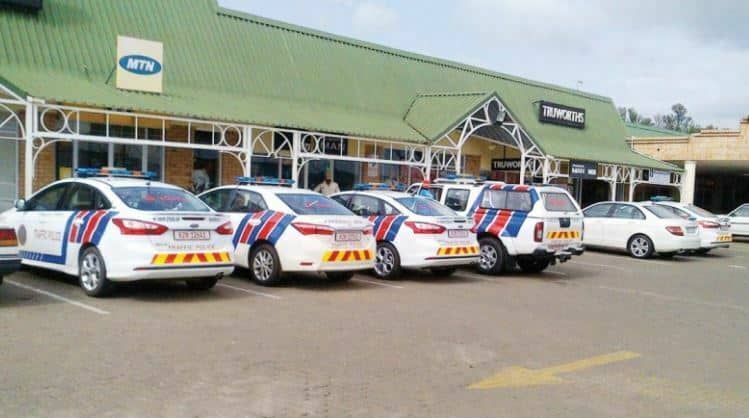
The KwaZulu-Natal Road Transport Inspectorate (RTI) meant to keep the province’s roads safe and enforce the law missed several key targets in recent quarters, and reported instances of low morale due to divided management and leadership.
This was revealed in a presentation to the transport oversight committee in the KZN legislature, covering the 2022/23 financial year and the first quarter of 2023/24.
Morale issues also extended to poor resources and infrastructure, where some buildings had apparently not been re-assessed for an increase in staff numbers since pre-1994.
The department outlined that its officials spent 15 554 collective hours dealing with mop-up operations following accidents and protest action obstructions. Those hours also included escorts and attending to disasters.
The DA criticised this aspect of the Road Traffic Inspectorate (RTI), saying it should focus more on prevention duties.
Low morale
The department revealed low morale among RTI officers in its presentation.
Read | RTI refused to attend N3 truck attacks because they are not paid for callouts
“External factors can also contribute to bad moral, such as growing negative media coverage, and other reports, such as audit findings.”
Among the many reasons for low morale was divided management and leadership.
“The disunity in management makes it difficult to collectively provide and implement solutions and leadership. It compromises communication and creates camps.”
To resolve this, the RTI conducted an independent investigation “and the report [was] submitted to the department”.
RTI stations not being resourced, in line with increasing population numbers, was also a point of low morale.
“Turnover due to retirement, natural attrition, resignation, promotions [are among reasons for this].”
The infrastructure issues the RTI faced also contributed to decreased morale.
The department added:
The stations were built pre-1994. [There is] no review to assess suitability with increasing staff, mandates and some stations were built as makeshift structures. [There are] no plans implemented to convert [these structures] to formal brick and [mortar].
Other reasons for low morale included lengthy time periods to supply tools of the trade, such as torches, stationery and supply of uniforms. There were also unresolved grievances from officers, including some station commanders, regional commanders and head office management.
Failed targets
The RTI failed to meet key duty targets.
In the first quarter of the 2023/24 financial year, its speeding operations target was 5 605 operations, but they only managed 3 860, a deficit of 1 745 operations.
For the same period, it had a goal of weighing 55 268 vehicles, but it only weighed 33 527, missing the mark by more than 21 000 vehicles.
It did, however, reach its drunken driving target of 112 operations, achieving 147 operations.
The target for number of vehicles stopped and checked was 342 376, but the RTI only managed 249 678 in the first quarter.
In the entirety of the 2022/23 financial year, the RTI also missed the mark on speeding operations, managing 9 003, missing the target of 13 764.
It did meet certain markers for the same period, weighing 162 692 vehicles after targeting 121 000 vehicles. The RTI also stopped and checked 995 782 vehicles out of a target of 834 900.
The transport department stated there was a shortage of resources that led to underperformance in 2022/23 for speed operations.
The department said:
During the performance period, there were no operational speed machines due to delays in securing the service provider to do calibration of the machines.
“Calibration of speed machine is a legal requirement in terms of Legal Metrology Act.”
The department said the remedy it received came in the form of assistance from a company Truvelo SA (PTY), who calibrated the machines at no cost.
The first quarter underperformance in 2023/24 was a result of underperformance in two regions, the department said.
This included the ongoing N3 Construction in Pietermaritzburg, an influx of coal trucks in Empangeni and the establishment of satellite station in Phongola.
“[These] circumstances [led] to officers being withdrawn from activities and focus on traffic management in the hotspots mentioned.”
The DA’s Sharon Hoosen said the more than 15 000 hours spent on mop-up operations should have been spent on visible policing.
“It also goes a long way to explain why there are hardly ever RTI vehicles on KZN’s major routes, particularly hotspot areas.
“KZN has been burdened by an excessive amount of road carnage due to reckless driving, unroadworthy vehicles and speeding. Trucks and taxi accidents have contributed massively to the increase in road accidents.”
She said it was “not enough” for the provincial transport department to launch a probe “every time there is a horror crash”.
“Strategies must be identified to prevent accidents. The MEC and his department can no longer adopt a reactive stance when people continue to die on their watch and while solutions are staring them in the face.”
With just four months until the peak holiday season arrives, there was no time to waste, she added.
“Our roads must be made safer and the RTI must be capacitated to provide proper support to law enforcement. KZN’s roads cannot remain a death trap.”





